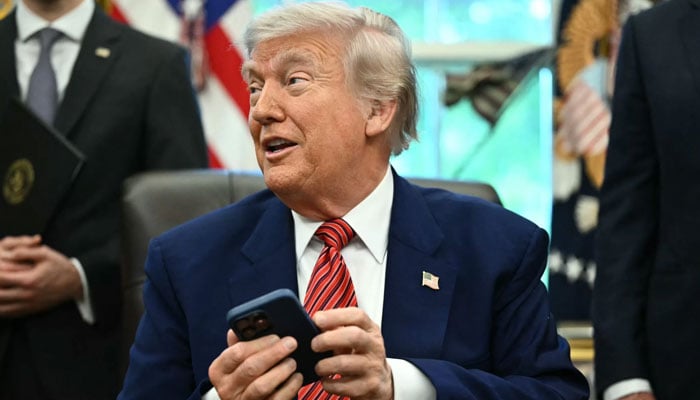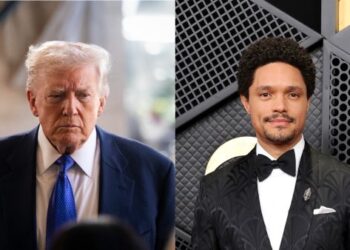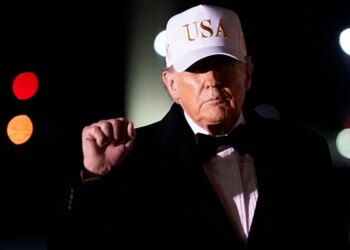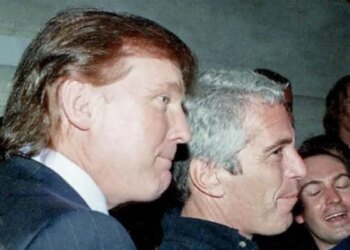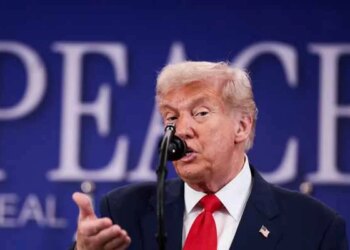Select Language:
Donald Trump is emphasizing his image as a tough negotiator and master dealmaker—traits that have defined much of his career—through an aggressive stance on trade tariffs. Recently, the White House posted a photo of him on Friday, holding a smartphone to his ear, with the caption: “Making calls. Making deals. MAKING AMERICA GREAT AGAIN!” His supporters celebrate each new trade agreement announced by Trump, viewing it as proof of his strategic negotiation skills and belief that tariffs are powerful tools to showcase America’s economic strength.
This week’s series of tariff updates followed a familiar pattern. On Thursday, Trump marked a new phase by adding additional tariffs on dozens of international trade partners with a black marker stroke, delaying their enforcement from August 1 to August 7, citing a need for more negotiation time. Known for changing trade deadlines—recently extending negotiations with Mexico for 90 days—some have mocked him with the acronym “TACO” (“Trump Always Chickens Out”).
However, analysts suggest this time may be different. Josh Lipsky, an economist at the Atlantic Council, states that Trump is “not chicken,” meaning he’s following through on his commitments, potentially even more than he promised during his campaign concerning tariffs. Matthew Aks, a policy analyst at Evercore ISI, doesn’t expect drastic changes to the current tariff orders but notes that countries like Taiwan and India might secure some exemptions during the allowable buffer period.
In the past, Trump’s negotiations led to compromises with major players like the European Union, Japan, and South Korea—each receiving different tax rates and boasting high US investments. Yet, the specifics of these agreements remain unclear, raising questions about exemptions, the impact on industries such as automotive, pharmaceuticals, semiconductors, and China’s role.
Aks explains that nations often avoid detailed disclosures to present deals in the most favorable light to their domestic audiences. For Trump, the ability to craft deals—regardless of the finer details—fits his political persona, reinforcing his reputation as a dealmaker willing to take bold steps to protect American interests.

